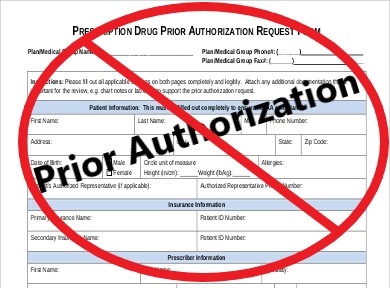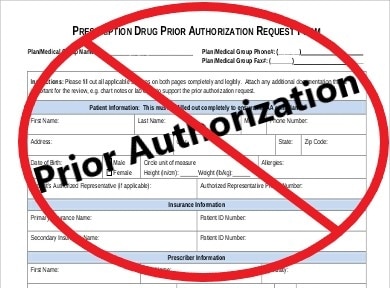
Las Vegas Plastic Surgery
President’s Message from the Clark County Medical Society:
January 2019 Issue
President, Clark County Medical Society
Member Since 2003
Prior Authorization (PA) is a process that requires physicians and hospitals to obtain approval from an insurance company or other payer to qualify for payment before they can deliver the prescribed treatment or ordered service their patients need. It is used by payers as a utilization-management tool to control costs and, traditionally, was applied mainly to newer or more expensive services and medications. Physicians have reported an increase in prior-authorization burdens, and this may in part be due to payers placing PA requirements on commonly prescribed drugs and services that are neither new nor costly.
The payer must now approve the order, or they won’t pay. If the patient must pay for the medicine, test or procedure themselves, it is most likely not going to happen, as the cost without an insurance company discount is prohibitive. Also, we’ve learned that prior authorization does not promise payment. Many surgeons have had incidences where after performing the surgery and caring for the patient, the payer does not pay.
Often the criteria used for prior authorization are unclear. Physicians rarely know at the point-of-care if the prescribed treatment requires prior authorization, only to find out later when a patient’s access is delayed or denied.
According to a recent survey conducted by the AMA, ninety-two percent of physicians say prior authorization results in care delays. Patients’ illnesses go untreated during this process. Prior authorization is more than an administrative burden; it’s a barrier to providing timely, patient-centered care.
Jack Resneck Jr., MD, a health policy expert and professor of dermatology at the University of California, San Francisco, said the survey results reflect doctors’ orders are delayed for even routine prescriptions.
On average, a medical practice will complete 29.1 PA requests per physician per week that takes 14.6 hours to process, (almost two full business days). About half of the requests are for medical services, while the other half are for prescriptions.
“In my own practice, I now get insurer rejections or PA demands for a majority of the prescriptions I write each day—even for many generic medications that have existed for decades,” Dr. Resneck said. “For many conditions I see, even when there are several treatment options, I increasingly run into plans where every single one of those choices requires a PA.”
Seventy-nine percent of the physicians surveyed reported that they sometimes, often, or always are required to repeat the PA process for prescription medications when a patient is stabilized on a treatment regimen for a chronic condition. Almost two-thirds of physicians reported having to wait at least one business day for the decision from a health plan on a PA request. Nearly one in four physicians wait an average of three to five days, and 7 percent wait more than five days, the survey found.
“Physicians face additional frustrations when initial PA requests are rejected, with health plans often replying with recommendations for alternatives that make no sense given a patient’s condition,” Dr. Resneck said. “This leads to resubmissions and additional phone calls to further explain why a patient needs a particular treatment or why the suggested alternative is completely inappropriate,” he added. “The health-plan employees on the other end of these interactions sometimes don’t know anything about the medication I’m requesting, and I find myself explaining diseases and treatments to them all too often.”
During this delay many patients will abandon treatment. This happens 78% of the time as the process is too cumbersome and time consuming. They often become frustrated with the physician, or their office, even though the physician is advocating for them. This leads to undue tension between physician and patient.
This affects solo practitioners and large entities alike. The Cleveland Clinic spends $10 million on prior authorization each year. Cleveland Clinic staffers send about 520 repeat PA-related faxes a month, including some that are retransmitted as often as six times. The Cleveland Clinic expects to process 900,000 outpatient PA cases in 2018.
The cost of prior authorization has grown. Cleveland Clinic spent $9 million in 2015 on processing PA cases with 175 “caregivers” doing the work, $9.7 million in 2017, and they expect to spend $10.7 million this year.
Besides these denials, there are other ways that PA’s result in a loss of income. For example, authorization may have been secured for an MRI of a patient’s pelvis, and while it is being performed, the radiologist can see the need to also do a study of the abdomen. Getting paid for such additional services can be problematic, as many insurers won’t permit a retro authorization.
Similar cases arise during surgery where a specific procedure has been authorized. The surgeon may spot an additional issue that needs be addressed during the operation, and even though the additional procedure is beneficial to the patient, the surgeon may have trouble getting paid for the additional procedure.
Ohio passed a PA-reform in 2016 and includes provisions that took effect this year. These include mandates that a web-based system be used rather than faxes, and that there be a 10-day turnaround on requests. Milheim said the Cleveland Clinic is calling for “adherence and enforcement” of these and other provisions in the new law.
Payers will learn that delaying treatments costs more in the long run. They will also have significantly lower patient satisfaction, and will most likely lose market share. Many are looking at how much money they are actually saving with this policy, and finding that the savings is not there. At the same time other insurance entities, including Medicare, are looking to widen prior authorization.
There seems to be some appetite for improvement. The AMA has been working with several insurance companies to improve the process. It is my hope that PA is recognized as a waste of time and resources, and is abandoned as a flawed policy.
If you have experienced prior authorization issues, we want to know. The Nevada Legislature is in session soon, and we have a chance to make a significant difference for physicians and patients. Contact the Clark County Medical Society or Nevada State Medical Association today to learn how you can get involved in helping. Jeffrey Roth, M.D. President Clark County Medical Society
Jeffrey Roth, M.D.
President
Clark County Medical Society
This article first appeared in the County Line Magazine January 2019 issue.



